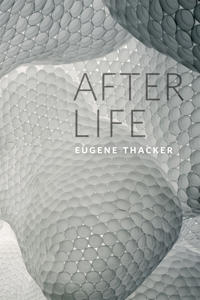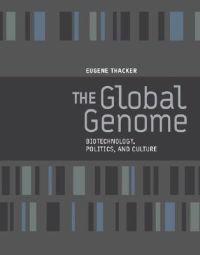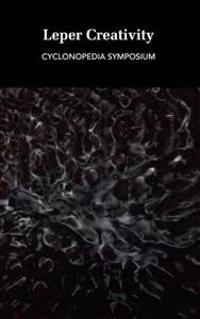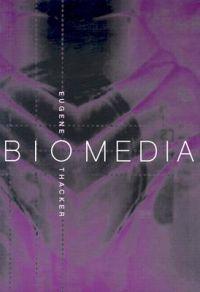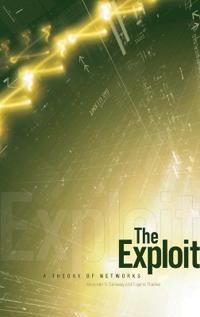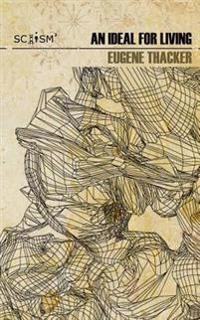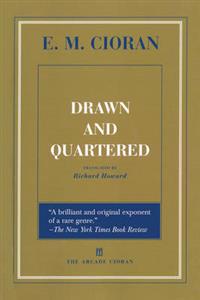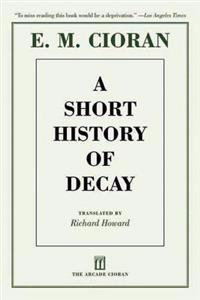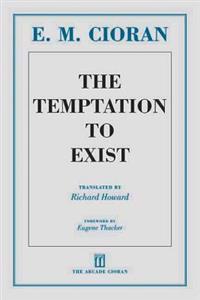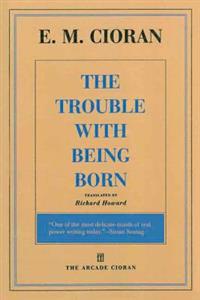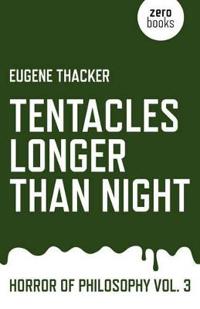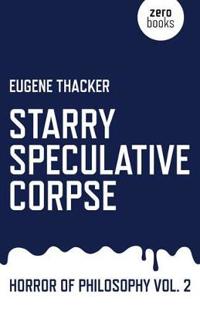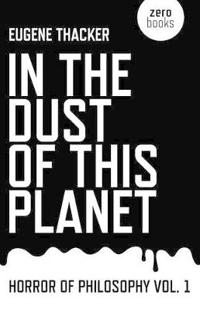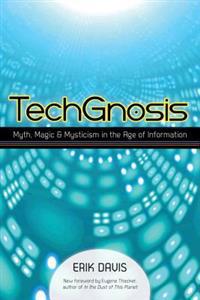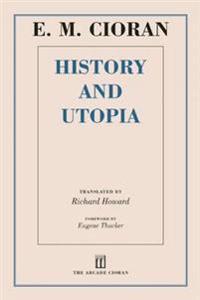After Life (Pocket)
avEugene Thacker
ISBN: 9780226793726 - UTGIVEN: 201011Life is one of our most basic concepts, yet when examined directly it proves remarkably contradictory and elusive, encompassing both the broadest and the most specific phenomena. We can see this uncertainty about life in our habit of approaching it as something at once scientific and mystical, in th[...]
Excommunication: Three Inquiries in Media and Mediation (Inbunden)
avAlexander R. Galloway, Eugene Thacker, Mckenzie Wark
ISBN: 9780226925219 - UTGIVEN: 2014-01-10Global Genome, The: Biotechnology, Politics, and Culture (Inbunden)
avEugene Thacker
ISBN: 9780262201551 - UTGIVEN: 2005-06-21The Global Genome (Häftad)
avEugene Thacker
ISBN: 9780262701167 - UTGIVEN: 200609In the age of global biotechnology, DNA can exist as biological material in a test tube, as a sequence in a computer database, and as economically valuable information in a patent. In The Global Genome, Eugene Thacker asks us to consider the relationship of these three entities and argues that -- by[...]
Leper Creativity: Cyclonopedia Symposium (Häftad)
avReza Negarestani, Eugene Thacker, Ed Keller
ISBN: 9780615600468 - UTGIVEN: 2012-04Anathemas and Admirations (Häftad)
avE. M. Cioran, Eugene Thacker
ISBN: 9781611456882 - UTGIVEN: 201211In this collection of essays and epigrams, E.M. Cioran gives us portraits and evaluations--which he calls "admirations"--of Samuel Beckett, Jorge Luis Borges, F. Scott Fitzgerald, the poet Paul Valery, and Mircea Eliade, among others. In alternating sections of aphorisms--his "anathemas"--he deliver[...]
Drawn and Quartered (Häftad)
avE. M. Cioran, Eugene Thacker
ISBN: 9781611456967 - UTGIVEN: 201211In this collection of aphorisms and short essays, E.M. Cioran sets about the task of peeling off the layers of false realities with which society masks the truth. For him, real hope lies in this task, and thus, while he perceives the world darkly, he refuses to give in to despair. He hits upon this [...]
A Short History of Decay (Häftad)
avE. M. Cioran, Eugene Thacker
ISBN: 9781611457360 - UTGIVEN: 201211E. M. Cioran confronts the place of today's world in the context of human history--focusing on such major issues of the twentieth century as human progress, fanaticism, and science--in this nihilistic and witty collection of aphoristic essays concerning the nature of civilization in mid-twentieth-ce[...]
The Temptation to Exist (Häftad)
avE. M. Cioran, Eugene Thacker
ISBN: 9781611457384 - UTGIVEN: 201302This collection of eleven essays originally appeared in France thirty years ago and created a literary whirlwind on the Left Bank. Cioran writes incisively about Western civilizations, the writer, the novel, mystics, apostles, and philosophers.The Temptation to Exist first introduced this brilliant [...]
The Trouble with Being Born (Häftad)
avE. M. Cioran, Eugene Thacker
ISBN: 9781611457407 - UTGIVEN: 201302In this volume, which reaffirms the uncompromising brilliance of his mind, Cioran strips the human condition down to its most basic components, birth and death, suggesting that disaster lies not in the prospect of death but in the fact of birth, "that laughable accident." In the lucid, aphoristic st[...]
Tentacles Longer Than Night: Horror of Philosophy (Häftad)
avEugene Thacker
ISBN: 9781782798897 - UTGIVEN: 2015-04Our contemporary horror stories are written in a world where there seems little faith, lost hope, and no salvation. All that remains is the fragmentary and occasionally lyrical testimony of the human being struggling to confront its lack of reason for being in the vast cosmos. This is the terrain of[...]
Starry Speculative Corpse: Horror of Philosophy (Häftad)
avEugene Thacker
ISBN: 9781782798910 - UTGIVEN: 2015-04Could it be that the more we know about the world, the less we understand it? Could it be that, while everything has been explained, nothing has meaning? Extending the ideas presented in his book In The Dust of This Planet, Eugene Thacker explores these and other issues in Starry Speculative Corpse.[...]
In the Dust of This Planet (Pocket)
avEugene Thacker
ISBN: 9781846946769 - UTGIVEN: 201108The world is increasingly unthinkable, a world of planetary disasters, emerging pandemics, and the looming threat of extinction. In this book Eugene Thacker suggests that we look to the genre of horror as offering a way of thinking about the unthinkable world. To confront this idea is to confront th[...]
TechGnosis (Pocket)
avErik Davis, Eugene (FRW) Thacker, Erik Davis
ISBN: 9781583949306 - UTGIVEN: 2015-03How does our fascination with technology intersect with the religious imagination? In "TechGnosis--"a cult classic of media studies, now back in print--Erik Davis argues that while the realms of the digital and the spiritual may seem firmly disengaged, mystical and esoteric impulses have in fact alw[...]
History and Utopia (Pocket)
avE. M. Cioran, Richard (TRN) Howard, Eugene (FRW) Thacker
ISBN: 9781628724257 - UTGIVEN: 2015-01"Only a monster can allow himself the luxury of seeing things as they are," writes E. M. Cioran, the Romanian-born philosopher who has rightly been compared to Samuel Beckett. In "History and Utopia," Cioran the monster writes of politics in its broadest sense, of history, and of the utopian dream. [...]

